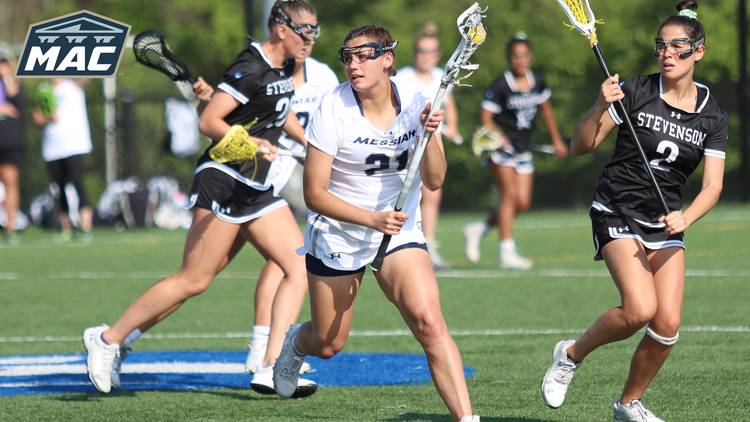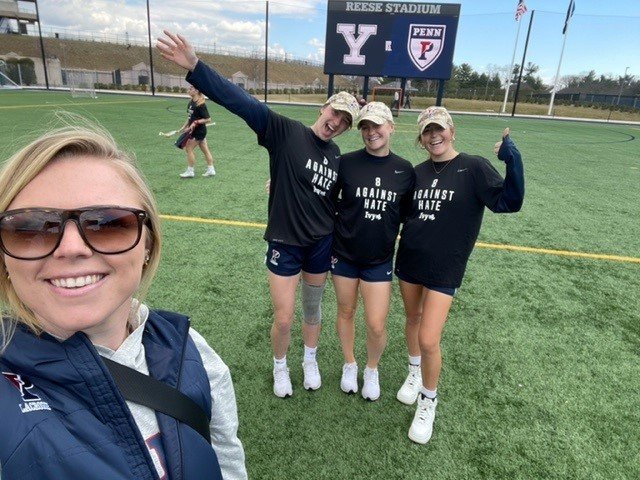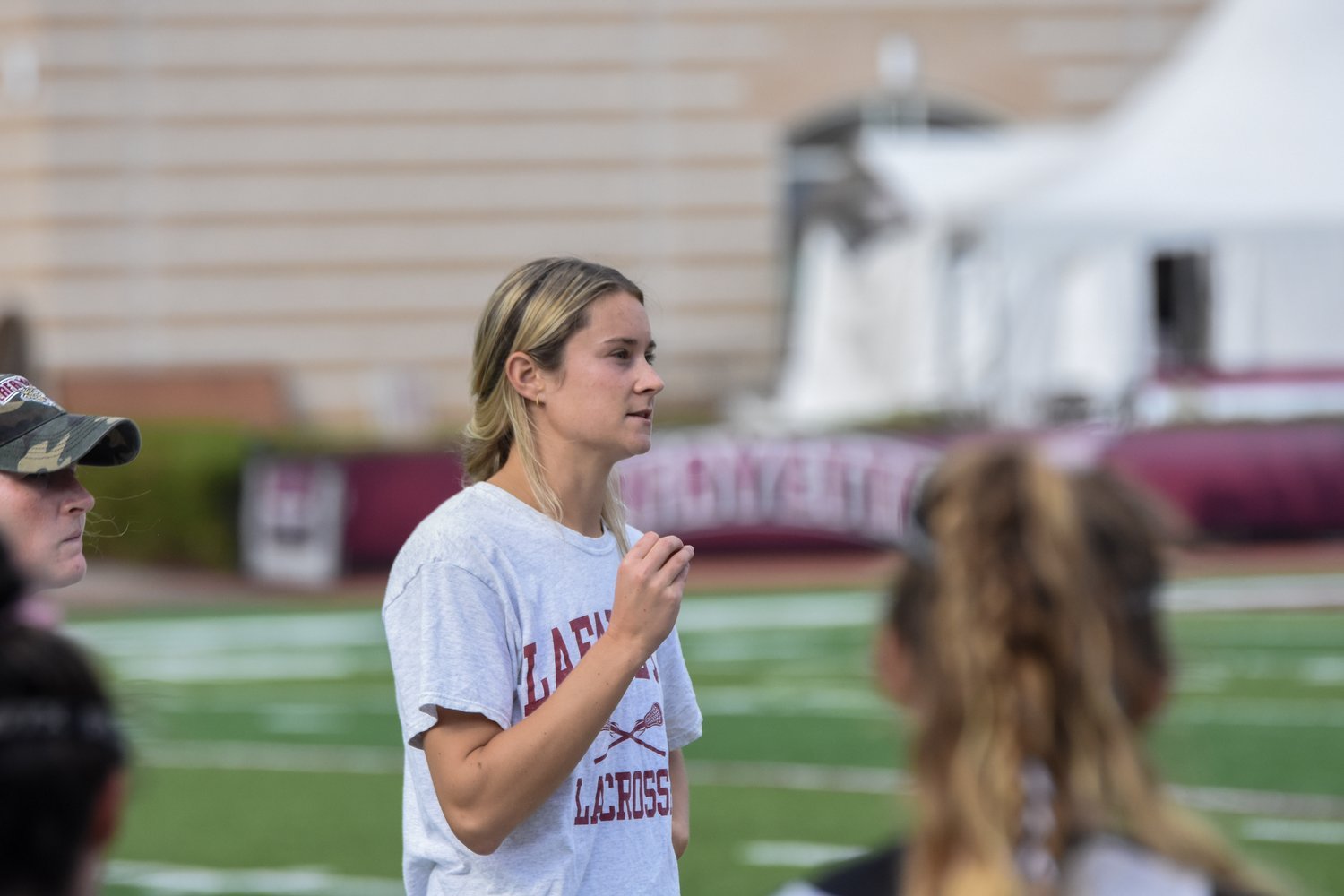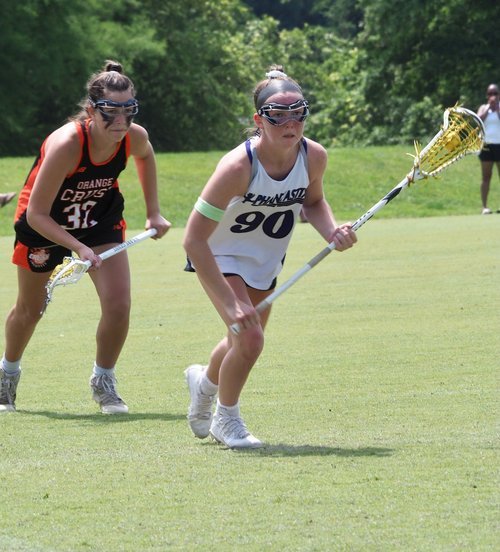THE MENTAL MATCHUP®
Overview | Podcast Episodes | Stories | Submissions | Submission Guidelines | Our Team | FAQs
The Mental Matchup® Stories
Please note, these stories are written by our authors and are based on their experiences. All photos used have been sent to us with permission to use by the authors. We take every step to ensure anonymity under certain circumstances to protect institutions, teammates, coaches, etc.

A Long Ride
My first three months at East Carolina University were amazing. New campus, new friends, a whole new environment, playing the game I love; every bit of it was nothing short of a young athlete’s dream. It was Thursday, October 31st, when I headed to my teammate’s house on my bike, in the dark, with no helmet. I had ridden to their house several times before, at all hours of the day, as it was not even a mile down the road. I leave the dorms and start flying down the hill towards their house, the intersection light is green, and the timing is perfect. As I'm approaching the intersection, the light turns yellow, and I immediately go into fight of flight mode: either I’m slamming on the brakes and hoping I have enough time to stop before I get to the road, or I’m speeding up and trying to cross the street. Adrenaline was rushing, so I decided to cross the intersection, there was no time for waiting.

Use a Safety Net
I have never been more terrorized by my mental health than in my junior year of college. I have never felt so alone, so depressed, so anxious and so awful in my entire life. I don’t know if I have the words to articulate how hopeless and tragic it was. It felt like I was drowning and screaming for help, but every time I would try to get to the surface I was pushed down and my lungs filled with water. My depression is high functioning. My class schedule and GPA wouldn’t have told you that I was struggling. My stats and game log wouldn’t tell you that I had to drag myself out of my bed that morning. The truth is there was very little that would tell you that I was struggling. That my depression was suffocating me. That it was killing me.

On the Brink of Change
I was standing in the common area of my locker room at Hofstra in 2015 when I said, “I am not a heady athlete.” First, I can tell you now that I have fully accepted who I am and almost all my lived experiences and y’all I was 100% a heady athlete - I was a heady human! Second, you might be wondering why I remember the specifics of that moment. A few hypotheses have been formulated; I was verbally trying to convince myself everything I told myself up to that point was false, or I am the next Truman and life knew I would end up getting into sports psychology, which would lead my career into mental health work. Regardless of the reason, “not being a heady athlete” was the pitfall of my college career. I should have been a heady athlete, I should have asked for help, I should have learned how to emotionally regulate, and I should have recognized that not facing my demons off the field would translate to my not facing my demons on the field. All these things would have been amazing right, but a few things got in the way. “Shoulds” are a form of irrational thoughts and when you are in the trenches, it is extremely hard to see the whole picture.

A Coach’s Perception
When I started my college coaching career six years ago, I went into it ready to work by one quote. A quote I heard my college strength and conditioning coach use once that really resonated with me, “No one cares how much you know, unless they know how much you care.” I wanted every player I coached to feel like I cared about who they were as a person. If they were struggling in school, I’d be helping them with their resources. And if they were struggling on the field, being clear and direct with where I felt they were at, what they did well, and what they needed to work on. I feel extremely lucky in my first coaching job to have been hired by a head coach that had the exact same outlook. Someone who valued the student athlete as a whole.

A Letter to the NCAA
How many lives does it take? How many of your student-athletes have to take their own life before you make a difference in the culture surrounding mental health in collegiate athletics? This month alone we have lost four collegiate athletes from suicide. As NCAA student-athletes, we have been doing our part to combat the stigma surrounding mental health in athletics through organizations like Morgan’s Message, the Hidden Opponent, and various other mental health initiatives at our respective institutions. However, we can see that despite our work across the country, mental illness remains a pressing issue in collegiate athletics.

Tending to My Well-Being as a Student-Athlete
As a former Division 1 student-athlete at the University of Louisville, my well-being and sense of belongingness were explicitly tied to my success in the pool. I was a proud All-American swimmer for our nationally ranked program, which provided my fondest memories, and is the root of my appreciation for what a group of driven and like-minded teammates can accomplish together. While I always rose to the occasion when the pressure was on, there also loomed a dark cloud of self-doubt that my successes were still not enough. Put simply: I needed help. The athletic department did a good job of setting up student-athletes with the resources they need to be successful in athletics, however, I still felt a disconnect from achieving any sort of balance as an individual out of the pool.

Regaining Life
As an athlete for as long as I can remember, I have learned to be resilient. I have learned to never settle, there is always more to do and you can always be getting better. I also learned that when I want something, I don’t stop until I get it. These traits have been my biggest attributes to teams I've been on and have refined my personal development. As great as these qualities are in athletes, they also are our hardest opponents that we battle each and every day. I don't exactly remember the season, day, or moment that my sport became a little less fun and a lot more like a job. I began to beat myself down when things weren’t “perfect” and had trouble celebrating little victories.

Running Back To Myself
When I wanted to go to college 3,000 miles across the country, my mom had only one condition — visit it first. For someone who grew up in 70-degree suburbia, it seemed fair enough to experience the bone-chilling cold and isolation of upstate New York firsthand before committing to living there for the next 4 years. But I was 17 and knew everything, so naturally, I refused. I told her I was going to college to run and get a good education and that was all I cared about.

Check-In On Your Friends
Since I was a little kid, I have been the biggest worrier my parents have ever met. Little did we know I was suffering from severe anxiety. In middle school, I started to see a therapist, which helped for the time being, but then I told my parents I didn’t want to continue therapy. I couldn’t find a therapist I connected with after trying a few before giving up. I started freshman year and began experiencing severe anxiety again, which led to depression. Being the kid I was, I just brushed it off and told myself to be fine. In my head, at the time it was just like when you’re trying to play through an injury on the field. In my typical fashion, the whole year I put on a fake smile and tried to ignore and distract myself from the sadness and worry I was experiencing.

A Letter to College Sports
I recently reposted a trending quote that read “we have to put the person before the student and the athlete otherwise we are at risk of losing all three.” The post was written in the wake of the passing of Katie Meyer, a standout goalie for the women’s soccer team at Stanford.
